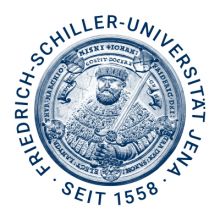“I get mail and letters almost every day; invitations to take up this issue and to encourage work on this,” Walter Rosenthal, who became president of the German Rectors’ Conference (HRK) last month, told Times Higher Education. The issue in question is longstanding and contentious: despite much admiration from abroad for Germany’s vocational education system, universities of applied sciences (HAW) have long been left short-changed in terms of funding and political capital.
“I don’t want a network with hierarchies,” said Professor Rosenthal, who is serving out the tail end of his term as president of the Friedrich Schiller University Jena at the same time as he gets to grips with the HRK job.
Although the HRK represents both types of institution, there are only a couple of meetings a year where they sit down together to talk. Professor Rosenthal said he had already started to change that, bringing together different groups to find common ground and shared interests.
He was explicit that parity of funding and esteem did not mean uniformity, although he did want both types of institutions to share a power that once separated them: the right to award doctorates. Many of Germany’s federal states have amended their laws to allow HAWs to train PhDs, and Professor Rosenthal said he wanted the remaining holdouts to do the same.
“We are always in a transition phase...and I could imagine that some of the universities of applied sciences get closer to the traditional universities,” he said, adding that other HAWs would remain close to their regions and to product-linked research.
The German Agency for Transfer and Innovation, a budding entity that has faced criticism after politicians said it should focus on smaller institutions, should initially set aside funds for HAWs alone, Professor Rosenthal said. “There is a lot of overlap and it’s important that we collaborate, but in this phase where there is so little funding available for the universities of applied sciences, we should try to create something protected,” he said, adding that joint funding that brought together the two types of institution was also important.
Before he led Jena, Professor Rosenthal spent more than a decade as a director at some of Germany’s non-university research institutes. He now wants universities to win some of the strategic tasks politicians have tended to hand to those institutes, while softening the boundaries between the two kinds of institution from the point of view of staff. “A postdoc shouldn’t even take notice of the fact this is a university or a non-university institute; it’s just a science area,” he said.
Student enrolments fell at some German universities for the first time in more than a decade this academic year, but a slow tapering off from demographic shifts was nothing to complain about, said Professor Rosenthal. Many universities in major cities like Berlin, Hamburg and Leipzig were overcrowded and still growing, but if smaller or regional institutions started to feel a squeeze, he said, they could look to international recruitment, an area where tuition-free Germany has had major gains since pandemic travel restrictions ended.
Another solution would be to ease the movement of students between vocational and traditional universities, said Professor Rosenthal, although for now many universities might welcome the chance to run smaller student groups with more individual discussions. “We have been in a situation of capacity overload almost everywhere, and now I think in a way we go a little bit back to normal," he added.
Register to continue
Why register?
- Registration is free and only takes a moment
- Once registered, you can read 3 articles a month
- Sign up for our newsletter
Subscribe
Or subscribe for unlimited access to:
- Unlimited access to news, views, insights & reviews
- Digital editions
- Digital access to THE’s university and college rankings analysis
Already registered or a current subscriber?










